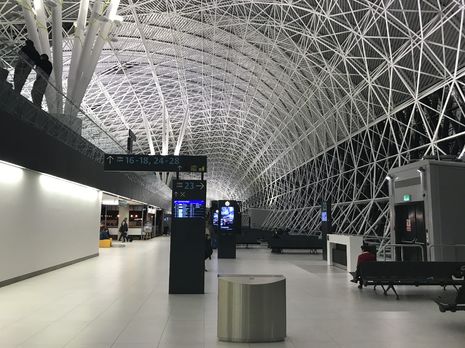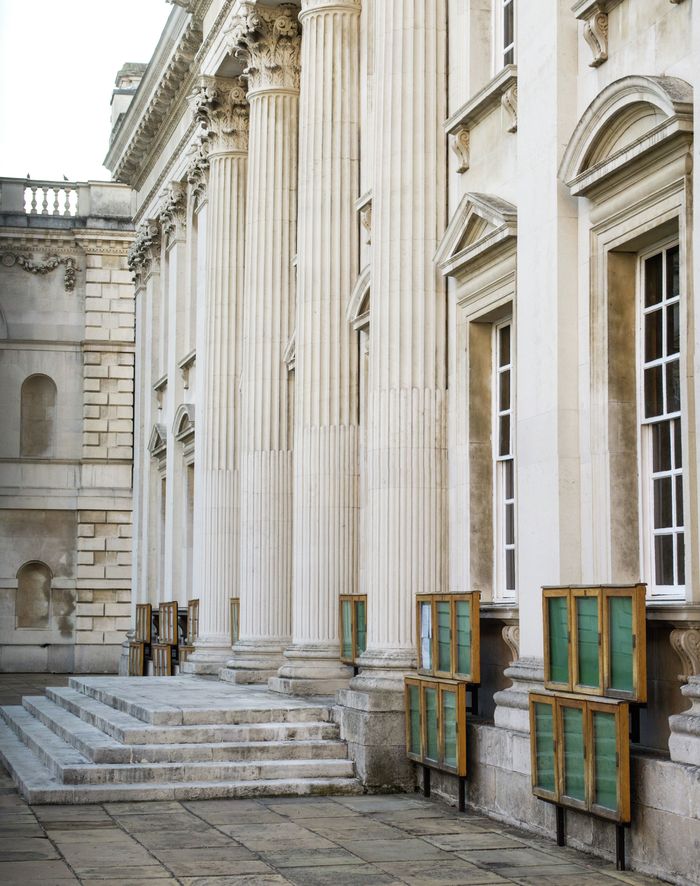Abandoned, alone, afraid: how Cambridge has failed students on their year abroad
Elizabeth Haigh recalls how year abroad students like herself have been let down by the MMLL faculty amidst the COVID-19 panic

Writing this, I feel a world away from the nightmare that was the final part of my year abroad. Just a week ago, I was sitting at a completely different desk at my workplace in Germany, trying to look normal while desperately attempting to control my breathing and stop an oncoming panic attack. I’d just witnessed someone being fired due to a lack of business, and was struggling to cope with overwhelming feelings of fear, confusion, anxiety and frustration.
The coronavirus pandemic is frightening for everyone. But during this crisis, year abroad students are being systematically failed by the University of Cambridge. While the pandemic has only begun to rapidly accelerate in the UK in the last few days, year abroad students have been witnessing a different situation for weeks.
From the lockdowns across Europe to severe travel restrictions and cancelled flights, students have been facing a huge number of practical issues, as well as the more serious and psychological issues that come with a pandemic. But, while things have been changing hour by hour in Europe, one thing has remained consistent: the silence from home.
“The lack of help has made an already stressful situation worse”
As COVID-19 spreads rapidly around Europe, year abroad students have received almost no communication from Cambridge. Towards the beginning of the outbreak, we were told to check Foreign and Commonwealth Office (FCO) travel advice regularly and to keep an eye on our emails, despite receiving extremely little information from the University. This has inflicted untold damage on many students, who have delayed making important travel decisions while waiting for advice that never came.
Last Friday, we finally received a more detailed email explaining the financial impact of returning from the year abroad early, along with the rather blunt comment that neither the Year Abroad Director nor the Year Abroad Office can serve as a ‘source of advice, support or information’ on ‘medical matters,’ students’ ‘next move,’ or their ‘pastoral support.’
Many of us, including myself, read this email in disbelief. If the Year Abroad Office refuses to advise us, then who will? A global pandemic is, of course, not something that Cambridge is used to navigating, but neither are students, to which the University has a duty of care. It is all very well to inform us of the financial consequences, but without any offer of financial support to compensate for this, for many students this merely adds to the worries.
Many students who have returned to the UK will lose their Erasmus funding, as well as having to pay back some of their maintenance loan from student finance. This leaves students in an impossible dilemma: stay abroad, despite often being alone and afraid and keep the money, or return to the UK and suffer a heavy financial loss which many of us cannot afford.
“we are witnessing a breakdown in the University’s structures of care”
To date, students have received no further information. This is an unacceptable failure of the University to look after its students’ mental and physical health. Borders across the world are closing, increasingly tough restrictions are being placed on residents around Europe, and more and more cases of the virus are being reported every day.
And yet there is no clear leadership and no support. Even though the FCO now advises against all foreign travel abroad, this has not even been acknowledged by the University, despite telling students to check travel advice regularly.
Surely, this is a clear sign that all students should return home and be granted the monetary and pastoral support they need to do so. The lack of help has made an already stressful situation worse: isolated in a foreign country without the usual support networks, the University has a responsibility to lend a helping hand to its students. But instead they have been neglected, left to navigate this situation themselves.
While many students have already returned home, those working have had a much more difficult and sudden decision to make. This has led to many students quite literally fleeing the pandemic in recent days before travel becomes impossible; rushing to book urgent flights or, where there are none available, jumping on trains to travel home via other countries. This all comes at a heavy financial cost, another factor which has not been addressed by the University, aside from an email containing a link to information about travel grants from Student Finance England which would help those still abroad get money to get home.
When planning the year abroad, students are reassured that we will be well supported, the Year Abroad Office will advise us on any problems we have, and that we will always be able to contact them for help. These exceptional circumstances have proven this to be false, and we are witnessing a breakdown in the University’s structures of care.
The situation is sure to worsen: in the UK, the coronavirus outbreak has reached the point where the University is closing. All students are being told to go home. And still, year abroad students have neither been advised to return, nor have we been told how this closure will affect those still stranded abroad.
I do not think the University should have ultimate or exclusive responsibility for students and their decisions, but they do have a duty of care to provide the information and support we need to make these decisions. There has been a lack of clear strategy, basic information and consistent advice.
The last few weeks have been amongst the most stressful of my life. Students have had to balance the very real possibility of being quarantined, stranded or even falling seriously ill in a foreign country with the worry of the financial impact of coming home. I have been forced to juggle the constant worry of hearing of more travel restrictions, the anxiety-inducing confusion of Cambridge’s silence, the need to reassure friends and family, all while working a 40 hour week and trying to stay healthy myself.
And yet I am one of the lucky ones. I have a home to go back to. For students without a home or secure family life, the conundrum is even worse. Cambridge, for all of its platitudes and professed care towards its students and staff, has forgotten us.
 News / Judge Business School advisor resigns over Epstein and Andrew links18 February 2026
News / Judge Business School advisor resigns over Epstein and Andrew links18 February 2026 News / Gov grants £36m to Cambridge supercomputer17 February 2026
News / Gov grants £36m to Cambridge supercomputer17 February 2026 News / Union speakers condemn ‘hateful’ Katie Hopkins speech14 February 2026
News / Union speakers condemn ‘hateful’ Katie Hopkins speech14 February 2026 News / CUCA members attend Reform rally in London20 February 2026
News / CUCA members attend Reform rally in London20 February 2026 News / Right-wing billionaire Peter Thiel gives ‘antichrist’ lecture in Cambridge6 February 2026
News / Right-wing billionaire Peter Thiel gives ‘antichrist’ lecture in Cambridge6 February 2026










